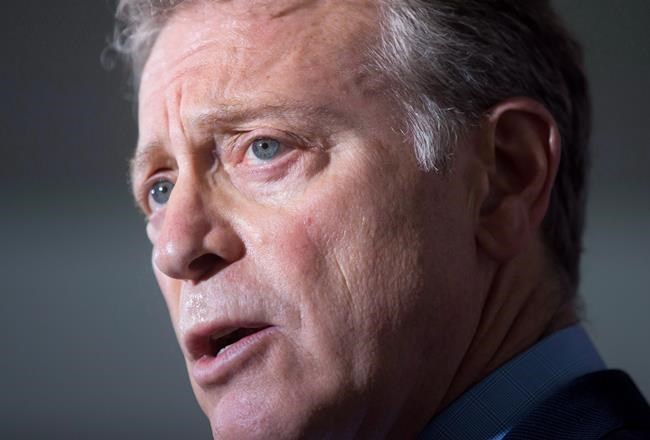 Search the public record since the B.C. NDP took power last July for any reference to the government confirming that it wants to “kill,” “halt,” “cancel” or “stop” the Kinder Morgan pipeline.
Search the public record since the B.C. NDP took power last July for any reference to the government confirming that it wants to “kill,” “halt,” “cancel” or “stop” the Kinder Morgan pipeline.
That’s still exactly what it wants to do. But if you find any of them saying so, it was by mistake. As soon as they were sworn in, they started speaking in code.
Transforming their campaign platform into government policy involved consulting with lawyers. And the lawyers warned them that committing to “stopping” a federally approved pipeline is well outside the law. That makes speaking in plain language a risky proposition.
The NDP’s new line for public consumption has been a much more vague promise to “defend our coast.” Premier John Horgan went a bit further this week and said they are still “committed to the campaign statements that we made.”
But there have been standing orders since July 18 not to utter that campaign promise aloud.
For the record, it was: “We will use every tool in our toolbox to stop the project from going ahead.”
The reason that promise has been erased is because it’s “inappropriate and unlawful,” Environment Minister George Heyman now acknowledges. Under probing from Liberal MLA Mike de Jong, Heyman acknowledged what shaky ground the government’s anti-pipeline position rests on.
Heyman said Horgan told him when he was appointed to cabinet that there was legal advice that “stopping the project was beyond the jurisdiction of B.C., and to talk about it or frame our actions around doing that … would be inappropriate and unlawful.”
“He advised me not to do that.”
So ever since then, the NDP government has been circumspect about a key promise in the platform that’s also one of key parts of the confidence agreement it has with the B.C. Green caucus. (“Immediately employ every tool available to the new government to stop” the pipeline.)
Heyman was much more explicit this week about the legal problems than he was during an exchange last month, when he split countless hairs about whether the NDP is still committed to stopping the project.
He not only acknowledged that promising as a cabinet minister to stop the project would be illegal, he also explained why — because the provincial government doesn’t have the jurisdiction.
“We learned that the authority to say yes or no to a pipeline rests with the federal government, and that is their jurisdiction. We accept that. … It became clear, through listening to legal advice, that we did not have the authority to stop a project that had been approved by the federal government within its jurisdiction.”
That helps explain the jurisdictional question Horgan said he wants to submit to a court. It wasn’t just to end Alberta’s wine boycott. They desperately need to find a way to legalize what their own lawyers were advising them is outside the law.
The dilemma also hints at why it’s taking so long to put the question to a judge. Horgan announced the plan on Feb. 22. It took until mid-March to retain a lawyer (Joe Arvay). It has been seven weeks, and Heyman this week is still unable to say specifically when it will be ready.
The stall works to their advantage. It’s another time-consuming hurdle for Kinder Morgan to deal with, and the company’s decision on Sunday to halt construction and set a May 31 deadline for a provincial green light shows it’s working. It also postpones a potential day of reckoning when the government could run into a judge who agrees with the government’s own lawyers.
The legal opinions also illustrate how far out on a limb Heyman went on Jan. 30. He announced a plan to “restrict” all heavy-oil shipments through B.C. while more safety studies are done. It’s not stopping a pipeline, but it’s close. That idea was parked weeks later.
Horgan is downplaying the legal advice, saying it applied more to the issuance of provincial construction permits, which have been proceeding.
“We have not been hassling them in any way.”
But if Kinder Morgan pulls out after spending $1 billion, there’s the prospect of a massive lawsuit over the idea that the NDP was determined all along to live up to an unlawful promise to stop the project, even if they couldn’t bring themselves to repeat it once in office.



